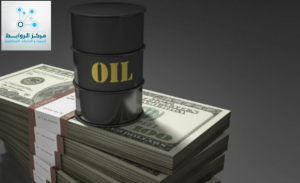By: Shatha Kalel
Black gold, more commonly known as oil, has long been a symbol of prosperity and power. It is the world’s most traded commodity, generating more than $1.7 trillion in revenue for exporting countries last year alone. With such wealth flowing from the ground, one might expect oil-rich countries to rank high in global measures of development, prosperity, and citizen well-being. However, reality tells a different story—especially in Iraq and much of the Middle East.
While oil has the potential to be a driver of progress, in many cases, it becomes a source of fear and instability. Its value is tied closely to volatile global markets, making oil-dependent economies highly vulnerable to sudden price drops. For countries like Iraq, whose economy relies heavily on oil exports, this unpredictability creates major financial uncertainty and disrupts planning for long-term development.
The Iraqi Paradox
Iraq sits atop one of the largest proven oil reserves in the world. Oil accounts for over 90% of its government revenues. Despite this enormous wealth, millions of Iraqis continue to live in poverty, with unreliable access to electricity, clean water, and quality education. Poor leasing agreements, widespread corruption, and weak regulatory oversight have allowed vast amounts of oil wealth to benefit a small elite, while much of the population remains excluded from its rewards.
Decades of conflict, combined with mismanagement and political instability, have also made Iraq’s oil sector a target for violence and exploitation. Instead of being used as a foundation for reconstruction and modernization, oil revenues often disappear into unaccounted expenditures or are used to prop up short-term political agendas.
The Resource Curse
Economists have long referred to the “resource curse” to describe the paradox where countries rich in natural resources tend to have slower economic growth and weaker democratic institutions. This phenomenon seems especially true in many oil-producing nations of the Middle East, including Iraq, Libya, and Venezuela. The problem is not the oil itself, but how it is managed—or mismanaged.
Oil income tends to centralize power and reduce the need for governments to tax their citizens. Without taxation, the traditional contract between state and citizen erodes, weakening public accountability. Governments reliant on oil money may neglect other sectors such as agriculture, industry, and services, leading to a fragile economy with few alternatives if oil prices fall.
Regional Reflections
Beyond Iraq, many of its neighboring oil-rich countries face similar challenges. While Gulf nations like Saudi Arabia and the UAE have invested heavily in infrastructure and attempted to diversify their economies, they too remain deeply tied to the fate of global oil markets. In poorer and less stable nations, the situation is more dire—oil becomes both a prize and a curse, fueling internal conflict, corruption, and external interference.
In contrast, some countries with little or no oil resources, such as Jordan or Tunisia, have focused more on education, tourism, and entrepreneurship, often showing greater resilience in times of economic crisis.
A Way Forward?
To escape the cycle of dependence, Iraq and similar countries must take bold steps toward reform. This includes:
Strengthening transparency and accountability in oil contracts and revenues.
Investing oil wealth into education, health, and infrastructure.
Diversifying the economy to reduce reliance on oil.
Promoting civic engagement and inclusive governance.
Black gold has the potential to transform nations, but without responsible management and long-term vision, it can just as easily destroy them. For Iraq and other nations in the region, the challenge is clear: turn oil into a foundation for growth, not a trap for future generations.
Economic Studies Unit / North America Office
Al-Rabetah Center for Strategic Research and Studies

